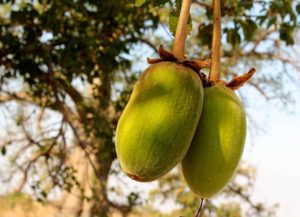An apple a day keeps the doctor away — but is that enough to keep us fit and strong?
From kale to quinoa to goji berries, more and more of us are constantly on the lookout for ways to eat ourselves healthy.
But as the search for the so-called “superfoods” intensifies, many health food fanatics are now increasingly turning to nutrient-packed products originating from Africa.
The latest craze is the baobab — known as “Africa’s superfood,” the sugar-free fruit is making its way into the mainstream thanks to its high levels of antioxidants, calcium, vitamin C and potassium.
But it’s not just the baobab. For millennia, the continent’s fertile lands have provided a bountiful supply of indigenous plants for food and medicine. Harnessing years of shared knowledge passed down through the generations, savvy foodies with an eye for business are now using local produce to create healthy dishes — and make a fortune in the process.
Tamarind and hibiscus
One of them is Yaganoma Baatuolkuu, a Ghanaian entrepreneur who’s using locally-sourced ingredients packed with nutritional goodness, such as hibiscus and tamarind, to bring a new twist to her offerings.
“There is this new underground movement which was started by the art community,” explains Baatuolkuu, “whereby a lot of the artists are either going vegetarian, vegan, or looking for the way our grandparents used to eat.”
Baatuolkuu’s start-up, called Wanjo Foods, is built on the childhood memories of picking herbs and fruits with her grandmother, who would dry, boil and juice the leaves into their meals. She recalls rarely falling ill. Years later in 2006, inspired by her grandmother’s healthy cooking skills, the enterprising Ghanaian started her company but halted production when she decided to pursue a Masters degree in Scotland. Upon her return home in 2013, constant requests from former clients propelled Baatuolkuu to revive her brand.
“I process some of these indigenous crops, herbs and spices into something that we already know,” says Baatuolkuu, who is constantly researching the medicinal properties of her ingredients and incorporating them into her recipes. “I’m looking at these vegetables that we have one way of eating and I am reprocessing them into another way.”
Baatuolkuu has found success supplying her line of health-conscious juices, syrups and marinades to the hospitality industry — her biggest client, she says, is a local bar that has started incorporating her syrups into cocktails.
Looking ahead, Baatuolkuu hopes to soon introduce other fruits and vegetables like the baobab to her line.
Read more at CNN



